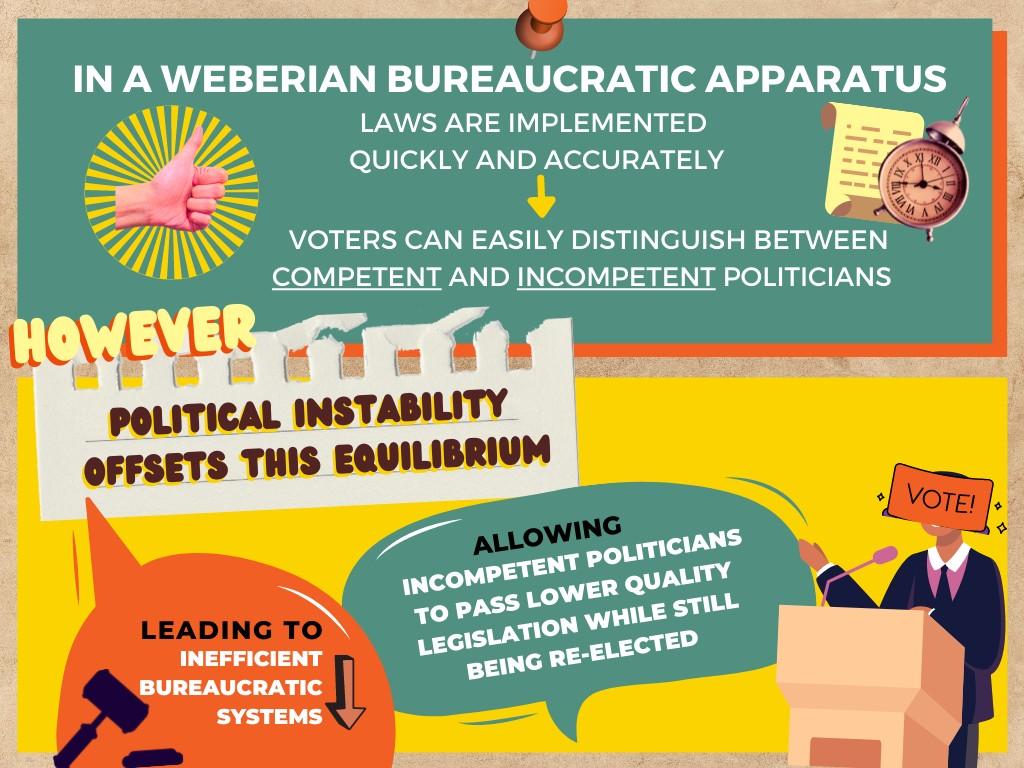
In Political Instability, Bad Politicians Thrive
In the transition between the Italian First and Second Republic, some indexes measuring the efficiency of the bureaucracy and the quality of the legislative production have registered a downward trend. In his latest paper, forthcoming in the American Economic Review, Bocconi Professor Massimo Morelli together with Claudio Michelacci (UNSW Business School), Luigi Guiso (EIEF), and Gabriele Gratton (EIEF) argue that temporary increases in political instability create incentives for the overproduction of lower-quality legislation which progressively deteriorates bureaucratic performance.
Intuitively enough, an efficient bureaucracy – called "Weberian" in the paper – can implement swiftly and accurately the pieces of legislation approved by politicians. However, the higher the number of laws and the greater their syntactic ambiguity, the more complicated it is for the state bureaucracy to process them. As a result, a "Weberian" bureaucracy can become inefficient – or "Kafkaesque". The negative consequences of having Kafkaesque bureaucracy, however, are not limited to longer implementation times and less effective translation of legislative provisions into practice. The more time passes after any law is voted in Parliament and the less transparent the implementation process is, the harder it is for voters to link good laws with good politicians and vice versa.
To highlight this complex chain of incentives, the paper employs a formal model which captures the utility of competent and incompetent politicians. Both categories want the public to think they are worthy of re-election and they signal their ability through the quantity and the quality of their legislative production. However, with an efficient bureaucracy, laws are implemented quickly and accurately, making it easier for voters to distinguish which politicians are competent. Therefore, an incompetent politician - who only produces bad legislation – refrains from legislative activism when the bureaucratic apparatus is Weberian.
Unfortunately, exceptional political instability offsets this equilibrium in three different ways. When governments and legislatures aren't expected to last as long as they are supposed to, incompetent politicians know they will be up for re-election before the bureaucracy implements their piece of legislation. In this situation, voters will not be able to observe their competence level and will rely on their political activism to decide if they are worthy of re-election. Secondly, times of exceptional crisis may increase pressure for reforms, leading to possible legislative overproduction. Thirdly, short-lived technocratic governments – however competent - are formed to deal with structural and complex changes which may require more and more complex legislation. All of those channels lead to an increased legislative output able to overload the bureaucracy and suffocate the internal incentives for efficiency. Eventually, these factors can move the political and bureaucratic systems towards a new Kafkaesque steady state where bureaucratic inefficiency expands the opportunities for incompetent politicians to pass lower quality legislation while still being re-elected.

Infographic by Weiwei Chen
The paper then tests the model by applying it to the Italian context and its transition to the Second Republic after the end of the Cold War. The empirical analysis shows that incompetent politicians – as defined by pre-election market earning capacity – increase their legislative activism significantly when they expect the legislature to last shorter than its natural length of time. Unfortunately, incompetent politicians also tend to produce worse laws according to different measures of legislative quality. As their laws get more ambiguous and opaque, the implementation stage gets more complicated and the bureaucracy transitions towards a more Kafkaesque equilibrium. Finally, as predicted by the model, incompetent politicians have a significantly higher chance of being re-elected if the legislature ends before time.
Crucially, a comparable institutional shakedown occurred in Germany after the fall of the Berlin Wall and the following unification with the East. However, Germany did not suffer an equally high level of political instability and it did not experience the same trend as Italy in terms of legislative overproduction, legislative quality and progressive deterioration of bureaucratic efficiency.
All this evidence supports the claim of the authors that even temporary surges of political instability can lead to a long term decline in the quality of legislative production and bureaucratic performance. Political instability, therefore, hinders the voters' capacity to monitor elected politicians and their pieces of legislation, distorting the whole purpose of political competition, which is to select decision-makers based on their abilities and ideas.
Gabriele Gratton, Luigi Guiso, Claudio Michelacci, Massimo Morelli, "From Weber to Kafka: Political Instability and the Overproduction of Laws," forthcoming in the American Economic Review.